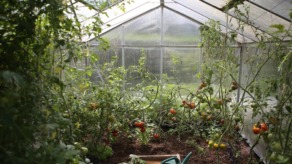Learning something new

Learning something new: not only is it fun and revitalizing, it’s also good for your brain.
Brainworks
Learning new things helps you in the development of your brain. But what does that mean exactly? According to Dutch neuropsychologist Margriet Sitskoorn, our brain continually creates new cells and establishes connections between these cells. “Learning something new is good for you,” she says. “Many people think that the brain is static, but that’s not true. It’s actually dynamic or, as we say, neuroplastic. Our brain is constantly growing new cells and creating connections between them, and that happens even more so when you learn or do something new.” The new networks originate particularly in the prefrontal cortex, the area behind your eye sockets, an area that Sitskoorn says is extremely important in today’s busy world.
We get so many stimuli nowadays. Just think of the notifications on your phone and all the incoming emails. “The prefrontal cerebral cortex regulates your emotions, your thoughts and your actions,” says Sitskoorn. “And that’s more important now than ever, because otherwise you would react frantically to all stimuli. You strengthen your prefrontal cerebral cortex through sleep and exercise, and this also happens when you learn something new. Cells are grown and the connections between the cells improve. As a result, you are better able to determine where to focus your attention.” However, according to Sitskoorn it is important that you do things that are entirely genuinely new, and not just more of the same thing or a variation on it.
Once you have chosen something, your new hobby can actually make you happier. American research agency Gallup conducted a survey among 130,000 people from 130 countries to find out what experiences make a person’s day good. One of the outcomes was: ‘Having learned something’. The feeling that you grow as a person contributes to your happiness in life. Curiosity is therefore indispensable, because if you are curious, you learn more.
Let yourself be surprised
Daniel Gilbert, professor of psychology at Harvard in the US, also underlines the importance of being open to new things. In his book Stumbling on Happiness, Gilbert writes about how it is not the certainties or familiar things that make us happy, but rather the surprises, new experiences, challenges, discoveries and unexpected learning moments. He believes that curiosity can ensure that these things come your way. And if you find it difficult to develop this characteristic, here are some ways that can help you do so:
- Be open to learning something new, to unlearn something or to learn something anew. And to change your mind or review your opinion.
- Continue to ask questions. Take the attitude of an investigative journalist, and ask basic questions about everything that fascinates you: who, what, where, when, how and why.
- See learning as something fun. Enjoy the steps you take during the learning process: consider that learning process as a goal.
Learn something new
Need a little push or some inspiration? We’ve written previously about starting something new:
- Start with drawing: if you try out some simple exercises it doesn’t have to be hard at all.
- The idea that knitting is dull is something of the past. It’s really calming and you can make some beautiful things.
- Nothing is more creative and fun than drawing your memories in an art journal.
- Learn something new in a relaxed way: start with yoga.
- Start taking daily walks: not only is it good for your health, it also works wonders for your mind.
Text/source Caroline Buijs Photography Alys Bajenaru/Unsplash.com







